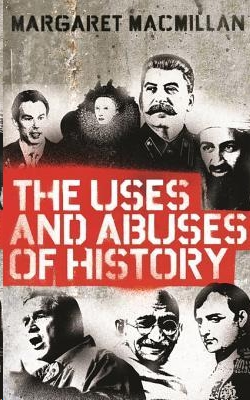
Dangerous Games
The Uses and Abuses of History
کتاب های مرتبط
- اطلاعات
- نقد و بررسی
- دیدگاه کاربران
نقد و بررسی

Starred review from March 2, 2009
MacMillan, author of the acclaimed Paris 1919
, reminds readers that history matters: “It is particularly unfortunate that just as history is becoming more important in our public discussions, professional historians have largely been abandoning the field to amateurs.” According to MacMillan, this is a grave mistake. Governments and leaders use history to invent tradition and subvert the past. In a world hungry for heroes, badly researched historical biographies fly off bookstore shelves. In this highly readable and polished book, readers learn of the dangers of not properly tending to the past, of distorting it and ignoring inconvenient facts. If done correctly, history helps unlock the past in useful ways. The author explores the ways history has present meaning—not always constructively: in providing a sense of identity for groups, as a basis of nationalism or national pride, as a tool for redress of past wrongs and as an ideological tool. In this important work, we learn that history is more than presenting facts, it is about framing the past. This is a must read for anyone who wants to understand the importance of correctly understanding the past.

Starred review from May 15, 2009
MacMillan (History/Oxford Univ.; Nixon and Mao: The Week That Changed the World, 2007, etc.) explores the nuances, manipulations and extortions of history.
For centuries, the recording of past events has been distorted for a wide variety of reasons—to induce nationalism, lay claim to land, protect reputations or strengthen a political argument. In this lucid text, MacMillan deftly maneuvers through time, citing conflicts of identity and belonging in the Middle East—where"ideologies call on history…but in their hands the past becomes a prophecy"—alongside analysis of China's Mao and his attempts to rewrite his country's past, destroying"all memories and all artifacts that, by reminding the Chinese people of the past, might prevent him from remodeling them" into his Communist regime. The author also disputes memory of or participation in an event as"proof" of a historical account, writing that many major events—the days leading up to Pearl Harbor, the fall of Napoleon, the Cuban Missile Crisis—contain narratives colored by unreliable spectators. Psychologists point out that memory—even of something recent—is hardly concrete. This fallibility, combined with the opportunity for control, has resulted in myriad written texts that are of questionable accuracy."The past," writes the author,"can be used for almost anything you want to do in the present." Political and religious leaders are also loathe to record their histories as marred by"evil," and instead highlight often selective, exaggerated positive perspectives of violent historic events—such as Bastille Day or Columbus Day—to draw tourists and increase national pride. MacMillan is careful to defend history and its objective chroniclers as a necessary, and often precise, science. However, when power and control are introduced, the truth is often left wanting and"bad histories" emerge, which"belong to morality plays but do not help us to consider the past in all its complexity." Examining history honestly is also crucial to the pursuit of peace and, the author sagely notes, the only way to teach"humility, skepticism, and awareness of ourselves."
A wide-ranging and provocative testament to transparency as the best historical education.
(COPYRIGHT (2009) KIRKUS REVIEWS/NIELSEN BUSINESS MEDIA, INC. ALL RIGHTS RESERVED.)

May 1, 2009
MacMillan, a professor of history at Oxford University and the University of Toronto, views the study and utilization of history as a double-edged sword. History, of course, can show us where we have been; it can also provide a sense of shared culture that binds otherwise diverse populations and forms the basis of the nation-state. For many, the study of history is plain fun, filled with colorful characters and real-life drama. But the abuse of history often provokes tragic consequences. Tyrants, including Stalin and Hitler, wrapped themselves in the mantle of national icons to enhance their personal power. Karl Marx saw history as a process leading inexorably to a classless society, which allowed his adherents to justify mass murder. The refusal to let go of some aspects of the past has prolonged a sense of grievance, hatred, and entitlement among numerous groups across the globe. For both historians and lay readers, this thoughtful and provocative work will beenlightening and useful.(Reprinted with permission of Booklist, copyright 2009, American Library Association.)

























دیدگاه کاربران